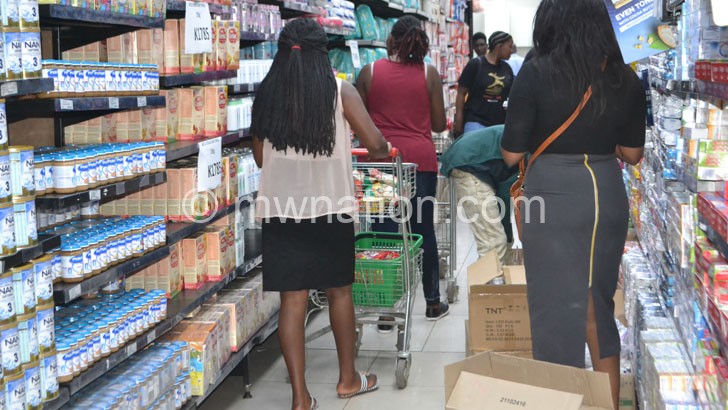Consumers in expenditure squeeze
Consumers Association of Malawi (Cama) says the rising cost of living is making it hard for low wage earners to afford basic goods.
But Employers’ Consultative Association of Malawi (Ecam), while acknowledging the eroding purchasing power, says employers are also struggling with rising costs of production, which is eating into their profits.

In a written response on Tuesday, Cama executive director John Kaito said while raising the minimum wage is one option, the other way would be for senior corporates to reduce their salaries.
He said: “There is indeed need to raise the minimum wage to address the current high cost of living. It is extremely difficult for anyone now to buy the most basic goods and services.
“We urge the corporate and government to reduce some of the high obscene salaries and benefits given to their top managers and transfer such resources to lowly paid.”
Meanwhile, the ongoing Russian invasion of Ukraine has created global supply chain disruptions, resulting in a rise in global commodity prices, thereby contributing to inflation.
Among others, soybean oil increased by 8.6 percent to $1,596.0 per metric tonne (MT) in February from $1,470 per MT during the same period in January 2022, according to Reserve Bank of Malawi (RBM) figures.
On the domestic market, cooking oul prices have moved from an average of K2 500 last year same period to K6 500.
During the review period, wheat prices averaged $390.5 per MT, up from $374.20 per MT in the previous month, a development which has seen prices of wheat products such as bread, rising from an average of K500 a loaf in January this year to K1 000.
On the other hand, the price for potassium chloride edged up by 77.3 percent to $391.8 per MT in February 2022 from $221 per MT for January 2022.
During the same period, Di-ammonium Phosphate (DAP) was sold at $747.1 per metric tonne, rising from $699.4 per metric tonne in January 2022.
On the domestic market, fertiliser prices have been on the rise, with retail prices increasing by over 90 percent from K22 042 for a 50 kilogramme (kg) bag in August 2020, to an average of K50 000.
Meanwhile, the cost of living has been on the rise with Centre for Social Concern (CfSC) figures showing that the cost of living in Malawi’s four cities, Lilongwe, Zomba, Blantyre and Mzuzu, shot by an average 5.45 percent to K255 593 last month.
Of this, the food basket, which includes maize, milling and cooking oil among other items rose to an average of K147 134 while non-food basket, which comprises housing, electricity and water, rose to an average of K107 985 for a household of six members.
In an interview on Tuesday, Ecam executive director George Khaki said arguing that the basis for salary increases should be based on the principles of affordability to pay the wage increases and improved productivity that sustains profitability of the enterprises.
“We encourage employers and workers to go into genuine social dialogue at enterprise level to identify challenges and agree on how best these challenges can be tackled to ensure that the welfare of employees is well taken care of whilst ensuring sustainability of companies at the same time,” he said.
Speaking separately, Malawi Confederation of Chambers of Commerce and Industry president James Chimwaza observed that raising the minimum wage only addresses a small percentage of our population, adding that Malawi needs a strategy to have its population engaged in production.
In its 2022/23 budget analysis, CfSC found that maintaining the monthly minimum wage at K50 000 will disadvantage majority of low income earners.





